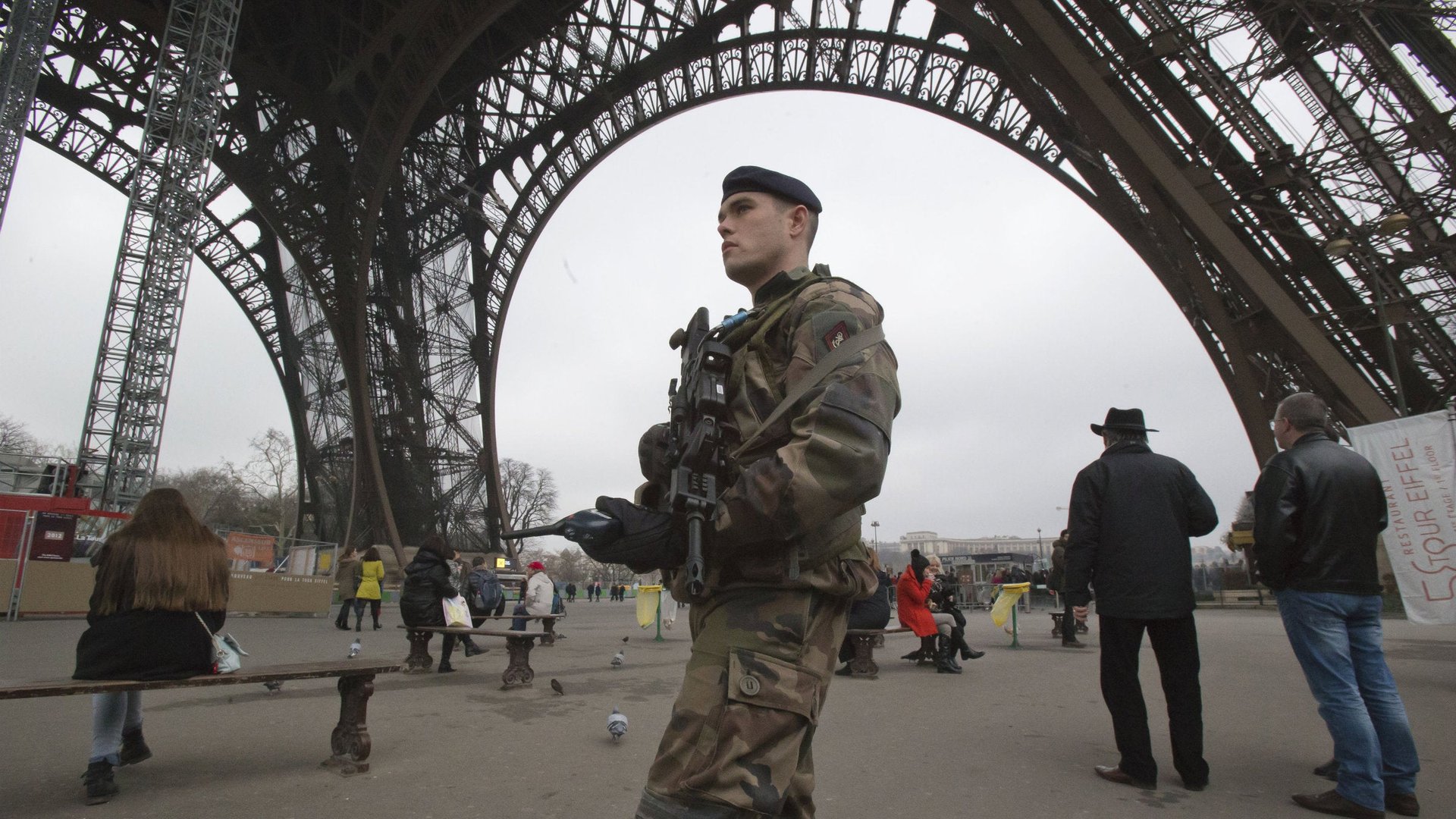The French are liked in Mali, which is good since they may be around for awhile
The French are extremely popular in the Malian capital of Bamako at the moment. A year ago—even just a few months ago—that was not the case. What has changed is the rise of Islamic militants who have seized the upper half of the northwest African country, where they began chopping off hands and raping women, and have now begun to march south against almost no resistance by the hapless Malian army. Interim President Dioncounda Traore pleaded for help from Paris, and French President Francois Hollande—fearing the rise of a dangerous new beachhead for al Qaeda—dispatched some 500 troops, jets and helicopters, which since arriving Jan. 11 have been met with unaccustomed open arms.


The French are extremely popular in the Malian capital of Bamako at the moment. A year ago—even just a few months ago—that was not the case. What has changed is the rise of Islamic militants who have seized the upper half of the northwest African country, where they began chopping off hands and raping women, and have now begun to march south against almost no resistance by the hapless Malian army. Interim President Dioncounda Traore pleaded for help from Paris, and French President Francois Hollande—fearing the rise of a dangerous new beachhead for al Qaeda—dispatched some 500 troops, jets and helicopters, which since arriving Jan. 11 have been met with unaccustomed open arms.
Yet France’s action may make its nail-biting 2011 intervention in Libya look easy by comparison. In Libya, the French-led NATO assault could rely on raw-but-motivated opposition fighters who eventually went on the offensive and forced out dictator Moamar Gadhafi. In Mali, observers describe a military that largely folds and flees. Fighting on Jan. 14 is an example—while French warplanes pushed back rebels from a forward position, other militants overran Malian troops in the village of Diabaly. French planes bombed the village all night, only stopping early this morning, according to reports. The militants “have not conquered the town [but] are hiding inside it to protect themselves [and] will be chased out,” Hollande told French radio today.
In Washington, US Defense Secretary Leon Panetta said the US will send assistance requested by the French. Canada and Great Britain have promised the same, as have Mali’s neighbors. All share France’s dread of yet another weak nation—like Pakistan, Afghanistan, Somalia and Yemen—with outsized disruptive impact as a hub for al Qaeda attacks on Europe and possibly even the US. In Paris, additional troops have been posted at places like the Eiffel Tower. In the region itself, forces in Mali could destabilize nations rich in metals, oil and gas: Mali borders Guinea and Cote d’Ivoire, which are experiencing mining and oil rushes, respectively, and oil-producing Algeria. Mali itself exports gold.
Was Diabaly a big French setback? One report is that the engagement has been blown out of proportion, and that in fact the militants hit the village on their way to sanctuary from the bombing in neighboring Mauritania. Yet in an extremely large territory the size of Texas, the problem will be if the early days and weeks of fighting go wrong, and the militants are not dispersed from the air but manage to dig in among civilians. If that happens, “it would sharply raise the political costs of the air campaign and force Mali’s degraded military into urban warfare and a potential quagmire,” Eurasia Group analyst Philippe de Pontet said in a Jan. 14 note to clients.
In a group interview with reporters Jan. 14, Panetta would not say what the US will be providing the French beyond “limited logistical support, intelligence support, and some airlift capability.” But reports are that the French have asked the US for drones, cargo planes and intelligence, which presumably means intercepts picked up by the National Security Agency and elsewhere.
One reason for Panetta’s secretiveness is that, legally speaking, the US can’t provide any direct assistance to Mali because it is still operating under leaders installed in a coup last year against President Amadou Toumani Touré. The US cut off assistance after the coup, and said it would not be restored until a democratic government takes charge. The coup was led by an American-trained junior officer named Amadou Sanogo, who was part of a US program to defend against the very Islamic militancy that is now going on. Sanogo was not wholly a villain—the Malian government seemed to be derelict in terms of caring for the needs of the military, and there appeared to be at least some official complicity in a Colombia-to-Europe cocaine trade route, according to US cables released by Wikileaks. But the instability of the last year has helped make the ground fertile for the militants.
The militants are made up largely of three groups including the indigenous Ansar al Din, MUJAO and Al Qaeda in the Islamic Maghreb, the latter two which include radical elements and foreign fighters from other African countries. Little is known about their ambitions, said Jennifer Cooke of the Center for Strategic and International Studies. She told me that some perceive the militant coalition as a “self-sustaining criminal network” in the businesses of cocaine trafficking and kidnapping.
“They haven’t expressed interest in taking over Mali as a whole. They may be upping the stakes for a bigger slice of the economic pie,” Cooke said.
Yet the perils are many. No one seems to have faith in the ability of regional or local forces to fight the militants or maintain the peace. The militants have vowed reprisals against western targets, which are present throughout the region and on into Europe and the US. Of the foreign help, only the French have pledged actual fighters, and they, Cooke said, “may be getting more tangled up than they want.”